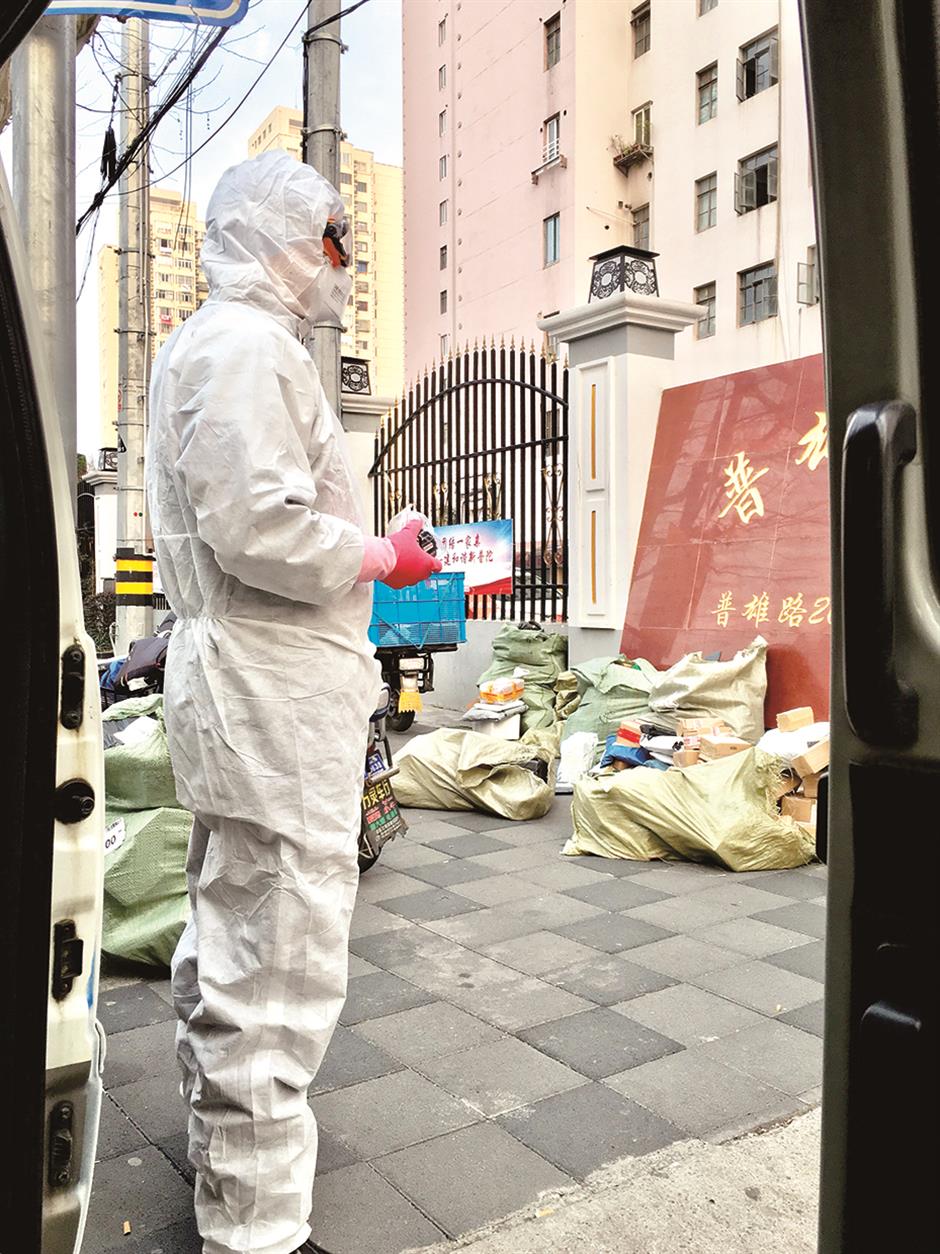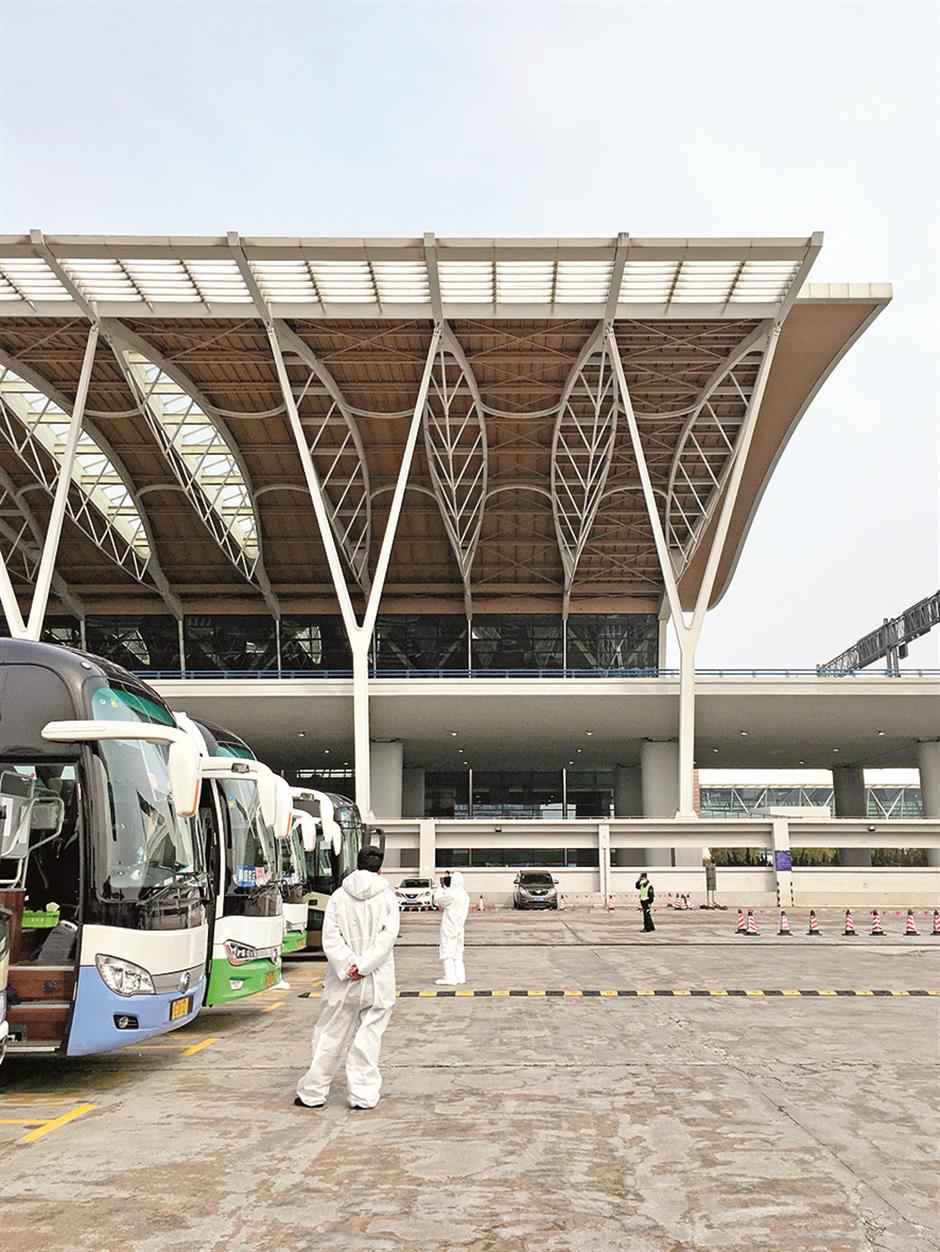Quarantine, one man's introspective journey
Past months have witnessed the unfolding of a truly global battle against an invisible adversary. Practically everybody in the world has been affected to some degree by the wide-ranging impacts of the novel coronavirus outbreak. Transportation remains drastically reduced, countless businesses have shut and entire cities have jolted to a halt. Never before in human history have more individuals simultaneously faced some form of restrictions on their movements; by some estimates, half of the people on Earth now live under orders to remain at home.
In this sense, my own quarantine story is not unique. I, like many foreign residents of Shanghai, left for my home in the US in early February, during which time the city was under virtual lockdown. And I, along with vast numbers of Chinese students and workers who had been residing abroad, made the journey back to Shanghai one month later. The account provided here serves to reflect on this unprecedented moment through documenting my own experience — not in spite of its resemblance to others, but because of it.

A coach driver, wearing facial mask and protective gown, stands at the front gate of Peter Catterall’s residential compound in Shanghai.
Upon returning to Pudong International Airport, I was impressed by the expansive and meticulous system that had since been implemented in order to process all individuals arriving from abroad. My itinerary took me through Japan, which at the time was regarded by Chinese immigration authorities as a key virus-hit country. Accordingly, a yellow label was affixed to my passport, stipulating that I was to undergo a two-week period of self-isolation. After a series of medical and document checks, passengers were sorted by urban district and told to await official transport to our respective homes.
In the time that had elapsed during my absence, the city had been transformed. Through the window of the coach to my district, I gazed out at businesses and narrow lanes that had been barren and lifeless just weeks before, but which now bustled with masked residents going about their daily errands. The roads pulsed with the familiar traffic that I had grown accustomed to in this metropolis. My ride into Shanghai from the airport left me with the impression that the city, if not returned to complete normality, had begun to stage a remarkable comeback.
Upon arrival in our district, all passengers underwent another brief screening procedure before splitting up for further transport to our individual residences. The security staff at my compound had already been notified of my impending return and, after checking and exchanging documents with a medical volunteer that had driven us, I was promptly escorted to my flat (we took separate lifts, needless to say). With the front door firmly sealed behind me, the two-week period of quarantine was under way.

Buses await departure from Pudong International Airport.
I awoke the next morning to a message from a local doctor who was requesting an update on my temperature and medical condition. This was just the first example, I came to realize, of an extensive effort to monitor my health throughout the course of the isolation period and eliminate the potential for me to inadvertently infect others within the community. In addition to the daily correspondence with the doctor, authorities at my compound had instructed me to leave any refuse outside my door each morning before 9am, at which time someone would come by to collect it and sterilize my entire entrance way with a disinfectant spray. A notice had been fastened to the door, suggesting that neighbors and delivery personnel should avoid direct contact, as I had recently returned from abroad. And, of course, I was not to venture from my flat for two weeks.
Over the following days, I came to develop a routine within these administrative confines, which I found to be an indispensible strategy for maintaining sanity and achieving a decent level of productivity. My mornings, which had previously been punctuated by the laughs and shouts of a raucous crowd of students assembling for school near my building, were markedly silent. The days were spent primarily on my flat’s enclosed balcony, which I had repurposed as a home office in order to maximize intake of fresh air and sun. In the evenings, I cooked dinner with phone-ordered groceries and made video calls to catch up with family and friends.
One of the unseen benefits of this present moment is that it provides us all with an opportunity to reconnect with loved ones whom, in the midst of our normally busy schedules, we have not been able to speak with enough. Calamitous global crises such as the one we are now collectively enduring, tragic though they are, can also serve to reinforce the bonds that link us together and remind us of life’s most precious qualities. Could it be that in this surreal moment, with half of humanity living in isolation, we are actually closer to one another than before?

Morning in the makeshift home office
Quarantine can be a meditative and introspective experience, but in such settings we can also fall victim to the same bad habits and vices that afflict normal everyday existence. With such a considerable surplus of time afforded to me by this period of isolation, I noticed a distinct increase in the time per day spent staring at a screen.
Ensuring sufficient exercise was another challenge, and near the end of the quarantine I had begun to observe subtle impacts on my own physical and mental wellbeing.
Combatting the ill effects of remaining inside for two weeks took creativity and discipline. But by the final days, I had attained a mode of living that enabled me to feel reasonably comfortable and healthy within my scaled-down environment. Rather than living in constant anticipation and preparation for various future engagements, I found that quarantine allowed me to engage in thoughtful reflection, acquire new insights and live in harmony with the present moment.
At last, however, the wait was over. Walking through my neighborhood on the first day following the end of my isolation period was a rejuvenating yet strange experience. I felt a profound sense of relief at my newfound mobility, as well as a cautious elation at the subdued buzz that was undoubtedly becoming apparent in the streets surrounding my building.
Spring in Shanghai is particularly beautiful this year. Accompanying the usual blossoms, buds and welcome warm breezes is a collective release of energy, stifled by our mutual insulation for so long. These seasonal changes mirror our own yearning for the better days that will inevitably come. Because the global battle against COVID-19 remains far from over, moments of despair and monotony will not disappear — so we must endeavour to learn from them.
As our lives gradually return to the normalcy we once took for granted, I will strive to remember the valuable perspectives I attained in quarantine.

Signs of spring and better days ahead

















